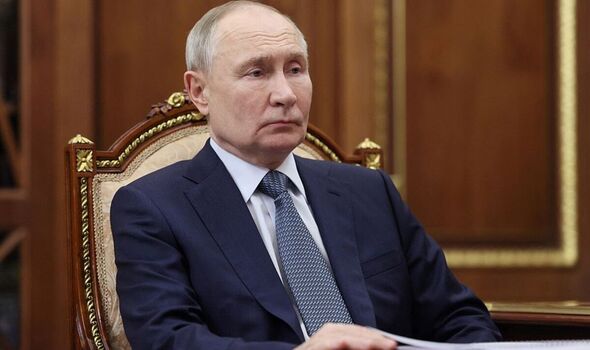World
Russia’s Coal and Car Industries Face Severe Declines Amid Sanctions

Russia’s coal industry is grappling with significant financial losses, exacerbated by ongoing sanctions and the impact of over three years of conflict. According to Dmitri Lopatkine, deputy director of the coal industry department at the Russian Energy Ministry, net losses for the sector could reach as much as 350 billion rubles (approximately £3.2 billion) this year. This downturn is driven by plummeting production and revenue, alongside rising debt levels that are affecting even the largest companies in the industry.
The war and sanctions have severely restricted access to key European markets, where Russia was previously a dominant supplier. As a result, coal exporters have been forced to pivot towards Asian markets, facing fierce competition from Australian, Indonesian, and South African firms. Compounding the challenges, imports of Russian coal into China, Moscow’s primary trading partner, decreased by 7.8% last year. Additionally, sanctions have hindered Russian mining companies’ ability to acquire new equipment and components from Western suppliers. Many firms are now resorting to “cannibalising” their existing equipment, dismantling several units to create a single operational one.
Impact on Employment and Related Sectors
Despite the difficulties, the coal industry remains a critical employer in Russia, providing jobs for thousands. Approximately 150,000 Russians work in 58 underground coal mines and 133 open pits. Furthermore, around half a million individuals are engaged in coal-dependent sectors, including thermal power plants, transportation, and various service industries.
The automotive sector is also facing a crisis, as soaring inflation and elevated interest rates create a challenging environment for consumers and manufacturers alike. Inflation in Russia is currently around 9%, prompting the Central Bank to maintain a high key interest rate of 18%. This situation restricts access to affordable loans, limiting consumers’ spending capacity. Consequently, car production has plummeted by 28% during the first six months of 2023, while truck production has fallen by an alarming 40%.
To mitigate costs and avoid widespread layoffs, several automotive factories have adopted a four-day work week. Affected companies include KamAZ, Avtovaz, and GAZ, along with tractor plants located in Chelyabinsk and Saint Petersburg. This reduced work schedule is projected to lead to a 20% loss in income for workers, further decreasing consumption levels in an already struggling economy.
As Russia’s coal and automotive industries navigate these turbulent times, the long-term implications for employment and economic stability remain uncertain. The challenges faced by these sectors highlight the broader impact of geopolitical tensions and economic sanctions on the nation’s industrial landscape.
-

 Health3 months ago
Health3 months agoNeurologist Warns Excessive Use of Supplements Can Harm Brain
-

 Health3 months ago
Health3 months agoFiona Phillips’ Husband Shares Heartfelt Update on Her Alzheimer’s Journey
-

 Science1 month ago
Science1 month agoBrian Cox Addresses Claims of Alien Probe in 3I/ATLAS Discovery
-

 Science1 month ago
Science1 month agoNASA Investigates Unusual Comet 3I/ATLAS; New Findings Emerge
-

 Science4 weeks ago
Science4 weeks agoScientists Examine 3I/ATLAS: Alien Artifact or Cosmic Oddity?
-

 Science4 weeks ago
Science4 weeks agoNASA Investigates Speedy Object 3I/ATLAS, Sparking Speculation
-

 Entertainment4 months ago
Entertainment4 months agoKerry Katona Discusses Future Baby Plans and Brian McFadden’s Wedding
-

 Entertainment4 months ago
Entertainment4 months agoEmmerdale Faces Tension as Dylan and April’s Lives Hang in the Balance
-

 World3 months ago
World3 months agoCole Palmer’s Cryptic Message to Kobbie Mainoo Following Loan Talks
-

 Science4 weeks ago
Science4 weeks agoNASA Scientists Explore Origins of 3I/ATLAS, a Fast-Moving Visitor
-

 Entertainment4 months ago
Entertainment4 months agoLove Island Star Toni Laite’s Mother Expresses Disappointment Over Coupling Decision
-

 Entertainment3 months ago
Entertainment3 months agoMajor Cast Changes at Coronation Street: Exits and Returns in 2025









